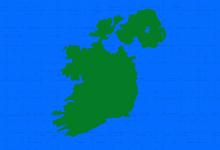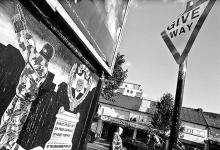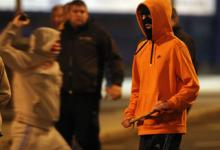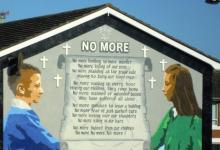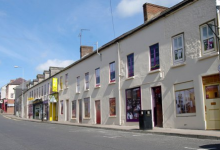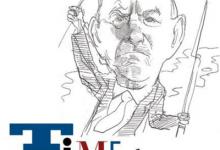CrisisJam
Has loyalism moved beyond itself?
There are general and easy readings of Ulster loyalism for which many method actors, as if casting for The Sopranos, write the script that tabloid journalism adores. The appearance of the tattooed sectarian – or, as Fintan O’Toole would have it, ‘an idiocy that comes with a fragmented culture’ - is as obvious as Ireland’s financial plight – although the latter was due to another form of thuggery that employed greater charm.
Equality of misery? Poverty and political violence in Northern Ireland
When the East Belfast riots erupted in late June, few who work in and with working class communities were surprised. We had known for some time that the UVF was recruiting young people and threatening to organise mass riots if its command structures – sorry, that should of course read ‘community workers’ – weren’t guaranteed ongoing funding after EU Peace money runs out in 2012.
The Irish Left and the Northern Question
There was a time when the more radical sections of the Irish Left were passionately concerned about Northern Ireland/the North/the Six Counties (delete according to preference). Elsewhere, the main lines of division among left-wingers ran between communists and social democrats, Stalinists and Trotskyists, anarchists and Maoists. All of these tendencies could be found on the Irish left-wing scene, but they often seemed less important than concerns about the North and the issues it required people to take a stand on.
Sectarianism and the search for political progress in Northern Ireland
The challenge that faces political actors in Northern Ireland is to offer real choices to ordinary people and to provide the leadership and encouragement that will enable these choices to be realised. The priority, in other words, has to be building a shared future based on tolerance and mutual respect instead of propagating division and segregation.
Grigory Potemkin gives Northern Ireland’s workhouse economy a makeover
In early June 2011, the official website of the Northern Ireland Assembly reported that the Minister for Social Development, Nelson McCausland of the DUP, had visited the region’s first 'virtual' street. The Executive Minister was in Dungannon’s Perry Street to inspect what the website described as a ‘Virtual Window Scheme’ that involved painting derelict properties and installing pictorial scenes into boarded-up window openings to create a 'living' appearance and street scene.
Twenty reasons why it's kicking off in cyberspace
In a cross-post from Deterritorial Support Group, its Ebaumsworld Division discuss 'political hacktivism' and why it's all kicking off in cyberspace.
Anger and indignation in Ireland, Greece and Tunisia
When Stephane Hessel wrote in Time for Outrage! - published earlier this year - that indignation with injustice should turn to ‘a peaceful insurrection’ perhaps he did not expect that the movement of ‘indignados’ in Spain and ‘aganaktismenoi’ (outraged) in Greece would take his advice to heart so soon and so spectacularly.
Mind the Gap
Arguments against gender quotas often revolve around the idea that quotas are undemocratic and discriminatory; the arguer in such instances seemingly failing to realise that our democracy already is undemocratic and discriminatory. Quotas are simply an attempt to right the (undemocratic, discriminatory) skew caused by the five Cs: Culture, Confidence, Cash, Childcare and Candidate selection, writes Anne O'Brian.
Weed the citizens
The We the Citizens National Citizens' Assembly takes place this Saturday and Sunday in the Royal Hospital Kilmainham. They describe a Citizens' Assembly as 'a way in which citizens can recapture trust in the political system by taking ownership of the decision making process.' But, writes Hugh Green, the project assumes, wrongly, 'that the institutions that regulate society are a little bit short of perfection, and that what is needed, in effect, is some tweaking here and some tinkering there.'

